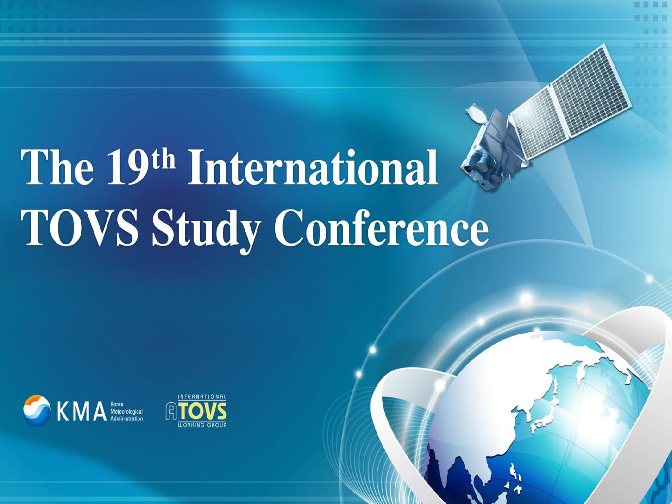

From 26 March to 1 April, ECMWF staff co-organised and attended the 19th International TOVS Study Conference (ITSC) on Jeju Island, South Korea. The conference is held every 18 to 24 months and this year was hosted in impressive fashion by the Korean Meteorological Administration (KMA).
It is the most focused forum for the use of passive satellite sounding data, which are the most influential observations for medium-range weather forecasts, particularly in terms of temperature and humidity. Passive sounding instruments measure radiation that is emitted naturally and do not actively transmit their own signals.
The ECMWF attendants showcased some of our world-leading research in a range of oral and poster presentations. They also made strong contributions to the working groups that shape and focus the work and recommendations of this very interactive community. Participants learned about the latest developments in the field of satellite sounding data, radiative transfer, data assimilation, and new and future satellite missions. We took the opportunity to both initiate and further foster our co-operation with organisations from East Asia, whose increasing importance was clear.
The conference is held by the International TOVS Working Group, a subgroup of the Coordination Group for Meteorological Satellites (CGMS) and the International Radiation Commission (IRC). By reporting to CGMS and IRC, the group plays an important role for the co-ordination and development of the global satellite observing system and the evolution of sounding science. The group is currently co-chaired by Mitch Goldberg (NOAA) and Niels Bormann (ECMWF). This year a record number of 196 participants from 35 organisations attended the conference.
